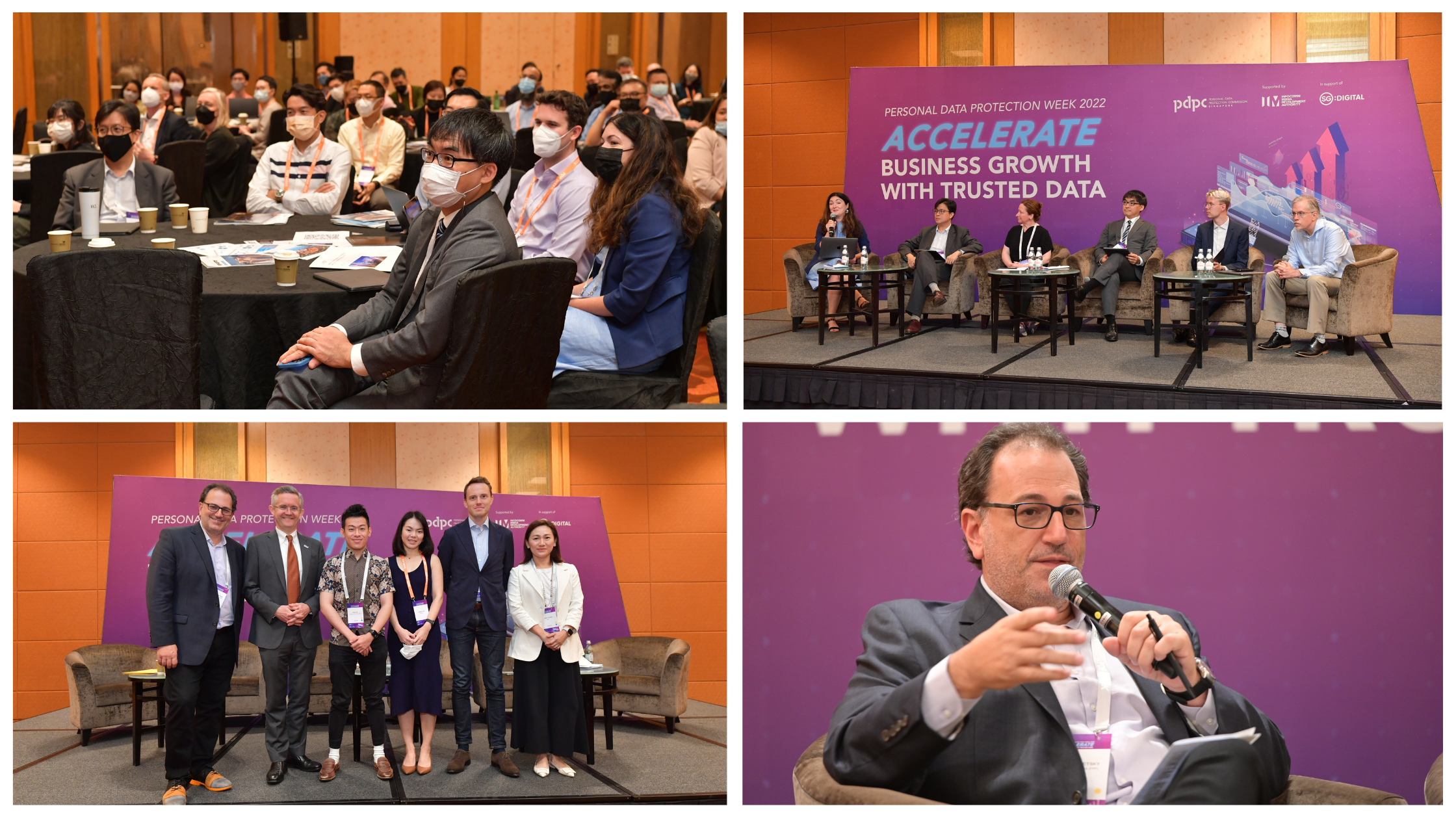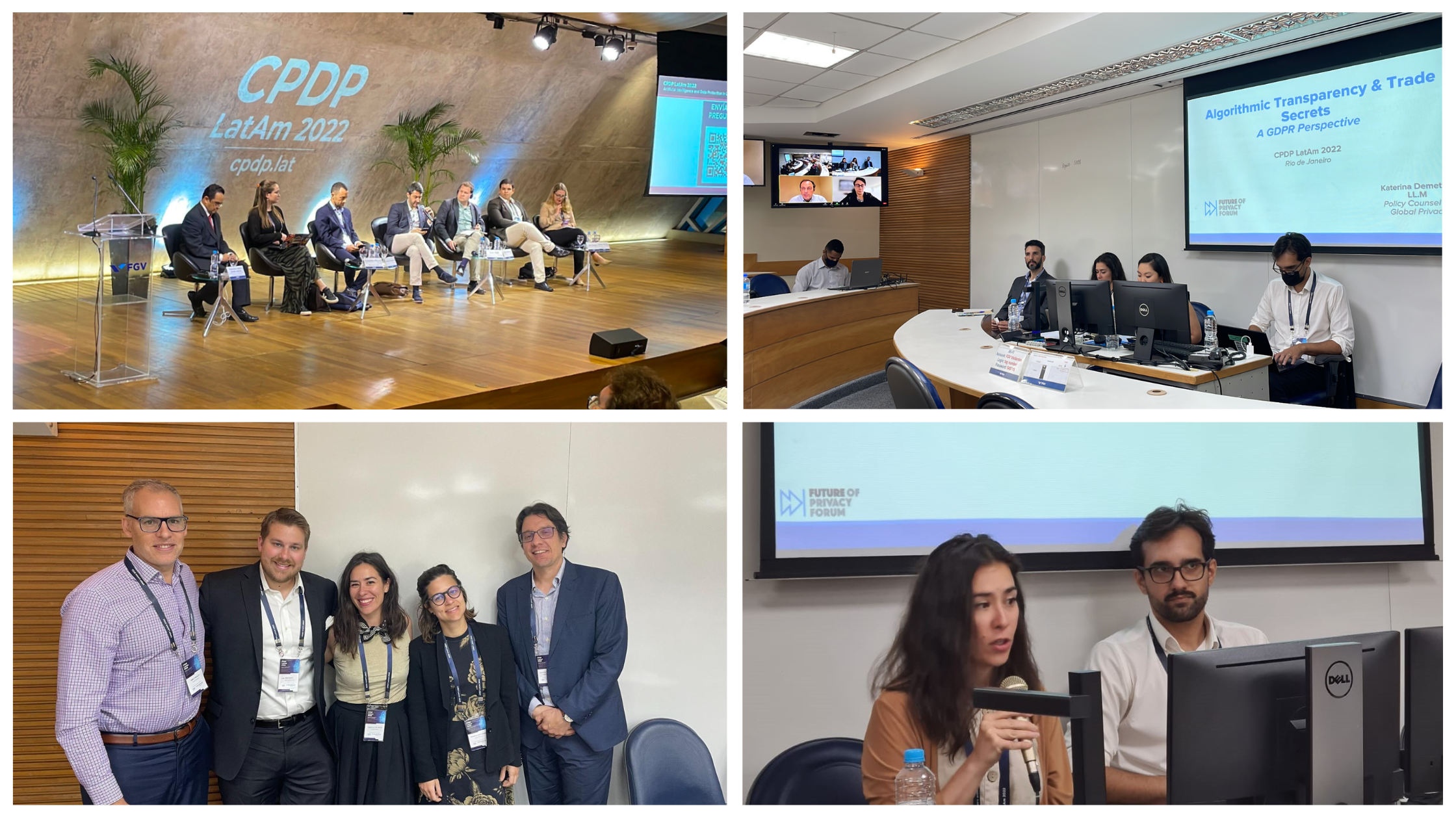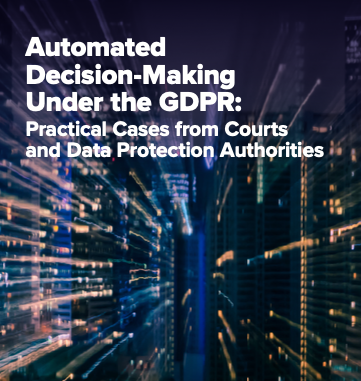
FPF and Singapore PDPC Event: “Data Sovereignty, Data Transfers and Data Protection – Impact on AI and Immersive Tech”
On July 21, the Future of Privacy Forum (FPF) and Singapore’s Personal Data Protection Commission (PDPC) co-hosted a workshop as part of Singapore’s Personal Data Protection Week, titled “Data Sovereignty, Data Transfers and Data Protection – Impact on AI and Immersive Tech” at Marina Bay Sands Expo and Convention Center in Singapore. The event focused […]

FPF at CPDP LatAm 2022: Artificial Intelligence and Data Protection in Latin America
This summer the first-ever in-person Computers, Privacy and Data Protection Conference – Latin America (CPDP LatAm) took place in Rio de Janeiro on July 12 and 13. The Future of Privacy Forum (FPF) was present at the event, titled Artificial Intelligence and Data Protection in Latin America, participating in two panels and submitting a paper […]

New Report on Limits of “Consent” in Vietnam’s Data Protection Law
Today, the Future of Privacy Forum (FPF) and the Asian Business Law Institute (ABLI), as part of their ongoing joint research project: “From Consent-Centric Data Protection Frameworks to Responsible Data Practices and Privacy Accountability in Asia Pacific,” are publishing the ninth in a series of detailed jurisdiction reports on the status of “consent” and alternatives […]

New Report on Limits of “Consent” in Australia’s Data Protection Law
Authors: Dominic Paulger and Elizabeth Santhosh Elizabeth Santhosh is a current law student at Singapore Management University and an FPF Global Privacy intern. Introduction Today, the Future of Privacy Forum (FPF) and Asian Business Law Institute (ABLI), as part of their ongoing joint research project: “From Consent-Centric Data Protection Frameworks to Responsible Data Practices and […]

California Age-Appropriate Design Code Aims to Address Growing Concern About Children’s Online Privacy and Safety
Authors: Chloe Altieri, Kewa Jiang Kewa Jiang, CIPP/US, is a 2021 graduate of USC Gould School of Law and a Student Contractor with FPF’s Youth and Education Privacy team. On May 26, 2022, AB-2273, the California Age-Appropriate Design Code Act (ADCA) unanimously passed the California Assembly and moved to the Senate for consideration. California Assembly […]

When is a Biometric No Longer a Biometric?
In October 2021, the White House Office of Science and Technology (OSTP) published a Request for Information (RFI) regarding uses, harms, and recommendations for biometric technologies. Over 130 entities responded to the RFI, including advocacy organizations, scientists, experts in healthcare, lawyers, and technology companies. While most commenters agreed on core concepts of biometric technologies used […]

FPF Report: Automated Decision-Making Under the GDPR – A Comprehensive Case-Law Analysis
On May 17, the Future of Privacy Forum launched a comprehensive Report analyzing case-law under the General Data Protection Regulation (GDPR) applied to real-life cases involving Automated Decision Making (ADM). The Report is informed by extensive research covering more than 70 Court judgments, decisions from Data Protection Authorities (DPAs), specific Guidance and other policy documents […]

FPF at the 2022 IAPP Global Privacy Summit
Last week, IAPP held its first in-person annual Global Privacy Summit in Washington, DC since 2019! Through expert panels and our expo booth, FPF remained active during this two-day conference, with our CEO Jules Polonetsky holding a conversation with FTC Commissioner Noah Phillips, our data privacy experts speaking and providing their expert analysis at the […]

BCI Commercial and Government Use: Gaming, Education, Employment, and More
This post is the third in a four-part series on Brain-Computer Interfaces (BCIs), providing an overview of the technology, use cases, privacy risks, and proposed recommendations for promoting privacy and mitigating risks associated with BCIs. Click here for FPF and IBM’s full report: Privacy and the Connected Mind. In case you missed them, read the […]

Understanding why the first pieces fell in the transatlantic transfers domino
Two decisions issued by Data Protection Authorities (DPAs) in Europe and published in the second week of January 2022 found that two websites, one run by a contractor of the European Parliament (EP), and the other one by an Austrian company, have unlawfully transferred personal data to the US merely by placing cookies (Google Analytics and Stripe) provided by two US-based companies on the devices of their visitors.
